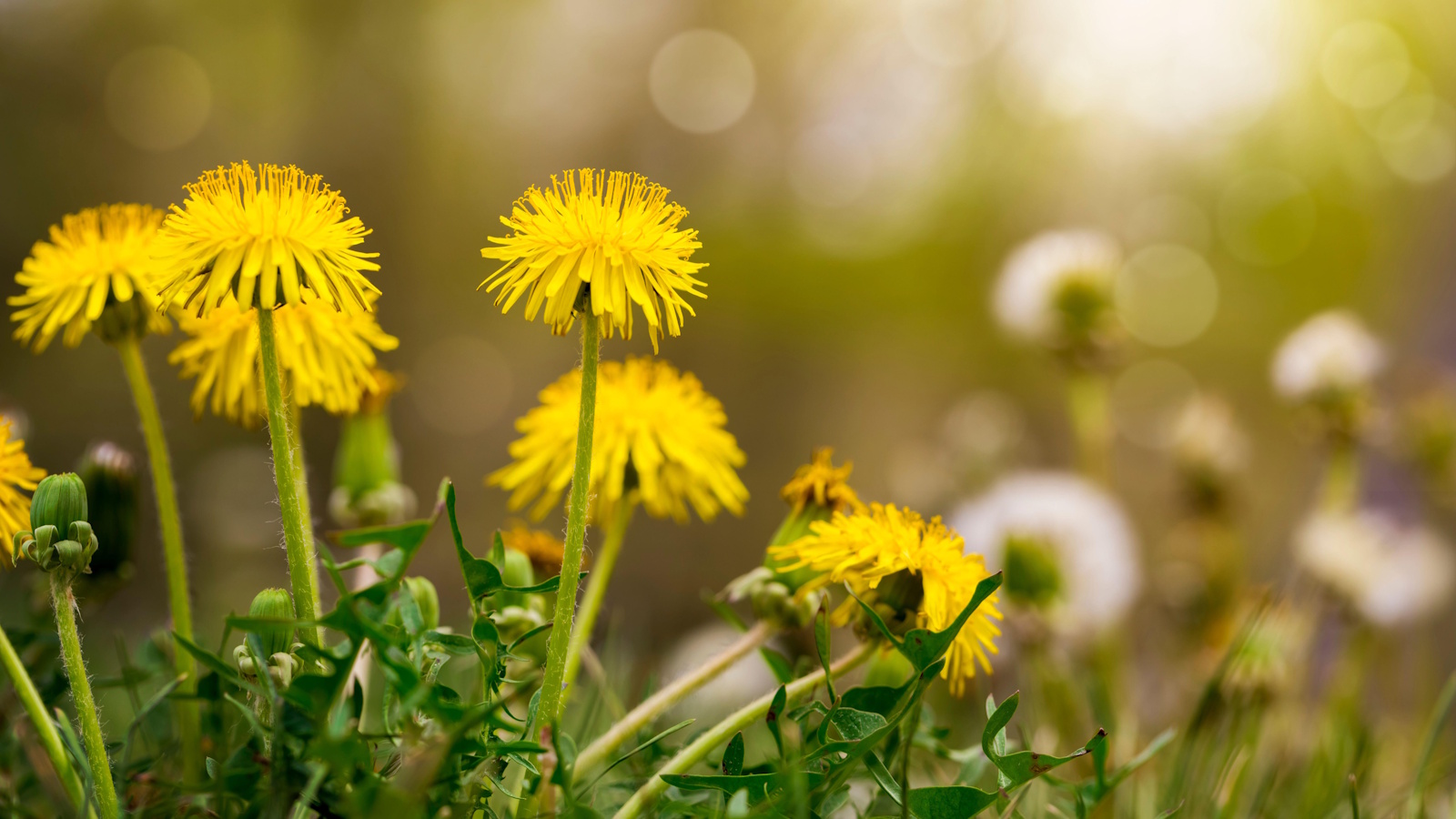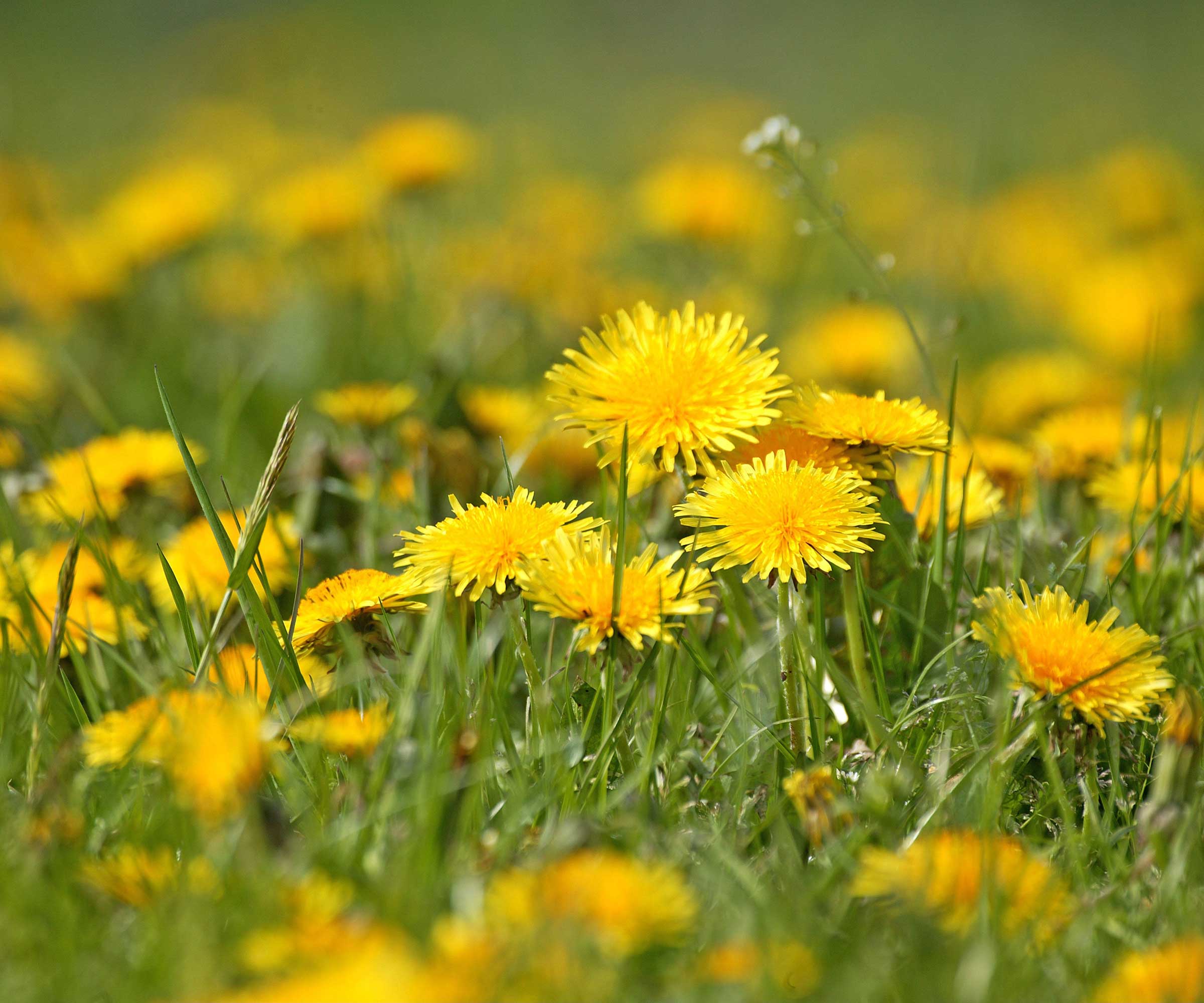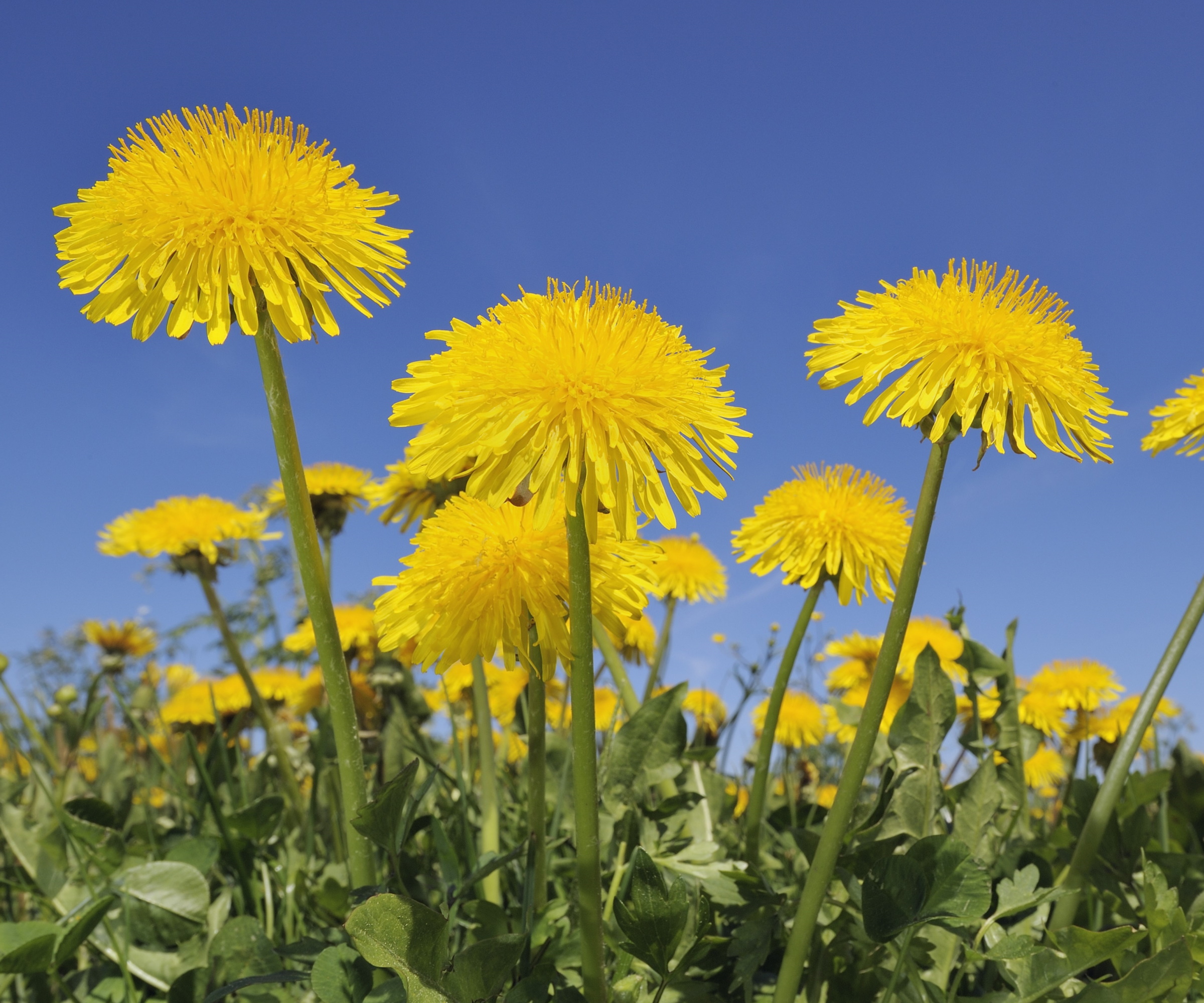Plant experts say leaving this 1 weed in your yard will benefit soil health, lawn growth, and pollinators – there are even medicinal uses for it
Some people love them, some people hate them, but there's no denying dandelions can support the overall health of your garden


Design expertise in your inbox – from inspiring decorating ideas and beautiful celebrity homes to practical gardening advice and shopping round-ups.
You are now subscribed
Your newsletter sign-up was successful
Want to add more newsletters?

Twice a week
Homes&Gardens
The ultimate interior design resource from the world's leading experts - discover inspiring decorating ideas, color scheming know-how, garden inspiration and shopping expertise.

Once a week
In The Loop from Next In Design
Members of the Next in Design Circle will receive In the Loop, our weekly email filled with trade news, names to know and spotlight moments. Together we’re building a brighter design future.

Twice a week
Cucina
Whether you’re passionate about hosting exquisite dinners, experimenting with culinary trends, or perfecting your kitchen's design with timeless elegance and innovative functionality, this newsletter is here to inspire
In recent years, many gardeners have looked differently upon 'weeds,' thanks to more awareness around the importance of these plants for pollinators and the biodiversity of our backyards. Dandelions are some of the most beneficial unexpected blooms to crop up in your yard, which is why experts want you to keep them around.
There's an ongoing debate about whether dandelions are weeds or flowers, and the answer is both. They have joyful, bright flowerheads that like to self-seed and quickly appear somewhere else, most notably on lawns.
While it can be tempting to get rid of dandelions, experts say you should leave dandelions in your yard for the benefit of your soil, pollinators, and even the growth of your grass. Not only this, but there are actually plenty of ways dandelions can be used outside the yard, too.
The benefits of leaving dandelions in your yard

Of course, the number one reason you should leave dandelions in your yard is that it's a valuable flowering weed for pollinators. In particular, many types of bees enjoy dandelions, but it's common to spot butterflies and other pollinators also hanging around them.
'Dandelion is a non-native perennial whose reputation is conflicted,' says gardening expert and broadcaster, Teri Knight. 'It's an early bloomer that is attractive to bees, who eat the nectar,' she adds.
Their nectar-rich nature is what makes dandelions so attractive to pollinators. They also have an abundance of pollen which bees, butterflies, and more pick up and spread when pollinating. In turn, this helps other plants thrive, including crops in your kitchen garden, and supports the biodiversity in your yard.
'Without those pollinators the availability and variety of fresh produce declines, along with fruits and nuts. Allowing some weeds to grow in our lawns helps pollinators help humans,' Teri notes.
Design expertise in your inbox – from inspiring decorating ideas and beautiful celebrity homes to practical gardening advice and shopping round-ups.
Not only this, but choosing to leave dandelions in your yard (and not getting rid of weeds in general) can actually help you achieve a green, thick lawn. This is because their deep taproots help aerate lawn.
Of course, if you plan to keep just one patch of dandelions on your lawn, you may also choose to use an aerator tool (from Amazon) to support the growth of the rest of your grass.
Their deep roots also support soil health by bringing essential plant nutrients from deeper in the ground higher up, making them available to other plants – this is known as nutrient cycling.
When you do eventually remove dandelions, don't just discard them. Instead, use them to make plant fertilizer rich in potassium, calcium, iron, and more. You can either chop the leaves up to place directly on the soil at the base of your plants, or add leaves and roots to homemade compost.

National Garden Bureau Member Teri Knight became a Master Gardener in 2003. She had a daily gardening radio show for 17 years on 30 radio stations in the Upper Midwest and was the Host and Co-Producer of DigIn Minnesota in 2013. Now, Teri hosts GardenBite.
Alternative uses for dandelions

It isn't just your yard that benefits from dandelions, however. They make the list of medicinal plants, edible spring flowers, and have a variety of unusual uses that make them worth growing.
'Dandelion tea is one of the most popular ways to embrace the benefits of dandelion,' says herbalist and holistic medicine practitioner, Jamie Bacharach. 'The leaves and roots of this humble plant may have the potential to aid in detoxification and assist in digestion thanks to its antioxidant properties,' she explains.
For this reason, you may consider using the dandelions in your yard to grow your own herbal tea.
'If you’re using the leaves, simply steep the leaves in boiling water for 10 minutes, and if you’re using the roots of the plant, roast the dandelion roots in an oven for 30 minutes before cutting them into small pieces and adding them to boiling water,' Jamie advises. 'You can add lemon and honey for flavor as dandelion tea has a distinct earthy taste which certain people may not enjoy,' she adds.
You can likewise use dandelions to make a tincture to help aid liver problems, Jamie notes:
'Simply add the roots of dandelions to a glass jar and pour it over with vodka, allowing it to soak for three or four weeks. Shake the mixture well everyday before then straining it in a glass jar with a dropper attached (from Amazon),' she explains.

Originally from Toronto, Canada, Jamie is the founder of the Acupuncture Jerusalem Clinic. She is a Licensed Acupuncturist and Chinese Medicine Practitioner who has worked under and learned from some of the most talented and accomplished Chinese Medicine practitioners in the world.
FAQs
How do I restrict dandelions to one patch of my lawn?
To benefit from dandelions without allowing them to takeover your entire yard, you can designate an area for them to grow. This is part of creating a wildflower meadow, allowing flowering weeds to grow as they wish in a particular space. It involves pulling up dandelion weeds that grow outside of this area (which you can do with this weed puller tool from Amazon), and deadheading dandelions before they go to seed and spread. Some gardeners also use weed spot treatments to keep dandelions away, although you should be aware of the any chemicals used in the products you choose.
You can brighten up your dandelion display even further by creating a wildflower garden. Plant wildflower seeds in spring to see an explosion of color in summer, bringing many pollinators to your outdoor space. This wildflower pollinator mix from Amazon has a good selection.

Tenielle is a Gardens Content Editor at Homes & Gardens. She holds a qualification in MA Magazine Journalism and has over six years of journalistic experience. Before coming to Homes & Gardens, Tenielle was in the editorial department at the Royal Horticultural Society and worked on The Garden magazine. As our in-house houseplant expert, Tenielle writes on a range of solutions to houseplant problems, as well as other 'how to' guides, inspiring garden projects, and the latest gardening news. When she isn't writing, Tenielle can be found propagating her ever-growing collection of indoor plants, helping others overcome common houseplant pests and diseases, volunteering at a local gardening club, and attending gardening workshops, like a composting masterclass.